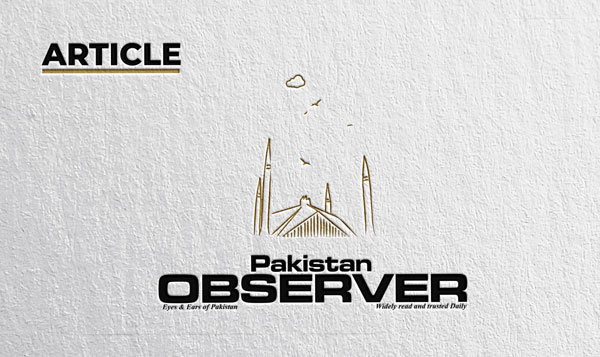Rights of the disabled person
PEOPLE across the world and throughout time have suffered from various life altering disabilities, some of which are more handicapping than others.
In the Muslim world, there is a feeling of embarrassment within families with disabled children.
By no means is this specific only to the Muslim world, and in fact, the world at large has been guilty of mislabelling people that are hindered by disabilities as liabilities and nuisances to society.
Despite the visibility created and advocacy done by prominent figures with disabilities and the numerous efforts they have taken in making places more accessible, having a disability is still seen as a liability in many communities, and Muslims are no exception.
There remains a stigma that people with disabilities are unable to work, unable to have normal relationships or lead normal lives.
In many cases, people with disabilities are often ostracized and have to deal with having their existence questioned on a daily basis, due to the misconceptions circulated by society regarding how disabilities present themselves and how people with disabilities should supposedly act.
Among Muslims, this prejudice towards having a disability extends to making assumptions about someone’s level of faith, particularly towards people with invisible disabilities or mental health conditions, whose outward symptoms are at times taken as signs of weakness or laziness.
Accessibility within the Muslim community is also another issue, as not enough mosques or Islamic services accommodate for the needs of Muslims with disabilities, putting up barriers for people with disabilities to participate in the community from practicing or discovering more about Islam.
Within Islam there is a duty for the Muslim community to be inclusive of people of all backgrounds and abilities, as per the wishes of Allah, who created mankind to be diverse and aim to be strong in their faith.
O people, we have created you from a male and a female and made you into races and tribes so that you may know each other.
Surely the most honoured of you in the sight of God is the one who is the most righteous of you.
(Qur’an 49:13) Allah similarly desired mankind to have different strengths and struggles, so that the community would be able to support one another and make up for each other’s weaknesses.
To each among you have we prescribed a Law and open way, If Allah had so willed, He would have made you a single People, but (His plan is) to test you in what He has given you; so strive as in a race in all virtues.
The goal of you all is to Allah; it is He that will show you the truth of the matters in which ye dispute.
(Qur’an 5:48)
In the time of the Holy Prophet (P.B.U.H), many Muslims with disabilities such as a blind man who was one of the first to enter Islam who had a disabled leg but joined in many battles alongside the Holy Prophet (P.B.U.H), and Abdullah bin Masood, a man with a weak body but was perfect in explaining the meanings of the Holy Quran – thrived in the community as were able to solely focus on cultivating their faith, rather than fight ingrained stigmas based on their physical or mental capacity.
As within the time of the Holy Prophet (P.B.U.H), all Muslims in today’s society should feel welcomed and accommodated.
This includes being patient and understanding in answering the needs of Muslims with disabilities, as well as making sure these services – such as medicine, regular check-ups, education programs and in-home care workers and facilities – are affordable and available for everyone.
The Muslim community on the whole should also be made more accessible, such as through building ramps and disabled bathrooms in Mosque and Islamic Centres, as well as providing interpreters, audio options and captions within any event or promotion material of all Islamic organizations.
But most importantly, we should make sure that our fellow brothers and sisters with disabilities in the community are extended the same respect, acknowledgment and encouragement as everyone else.
It can be seen that in the Holy Prophet (PBUH) had built a community which ensured no discrimination towards people with disabilities.
The Holy Prophet (PBUH) also advocated for disability rights by providing them accommodations such as modified prayer based on their needs and showed unwavering support in helping them on their Islamic journey, regardless of their capacities.
In the Qur’an, it is similarly emphasized that to ridicule or isolate someone based on their disability would go against Islamic principles.
O You, who have believed, let not a people ridicule people; perhaps they may be better than them; nor let women ridicule women; perhaps they may be better than them.
And do not insult one another and do not call each other by nicknames.Wretched is the name of disobedience after faith. And whoever does not repent then it is those who are the wrongdoers. (Qur’an 49:11)The most important step needed is spreading awareness about disabled people.
By understanding these disabilities better, the community will be better trained to provide assistance to those that have them; families will be more loving and caring to their children afflicted and act in accordance with the Divine law.
We as Muslims should do more in advocating for disability rights and assist our fellow Muslim with disabilities in fighting against devil, starting with addressing and taking accountability for the issues within our community.
— The writer is contributing columnist, based in Islamabad.










